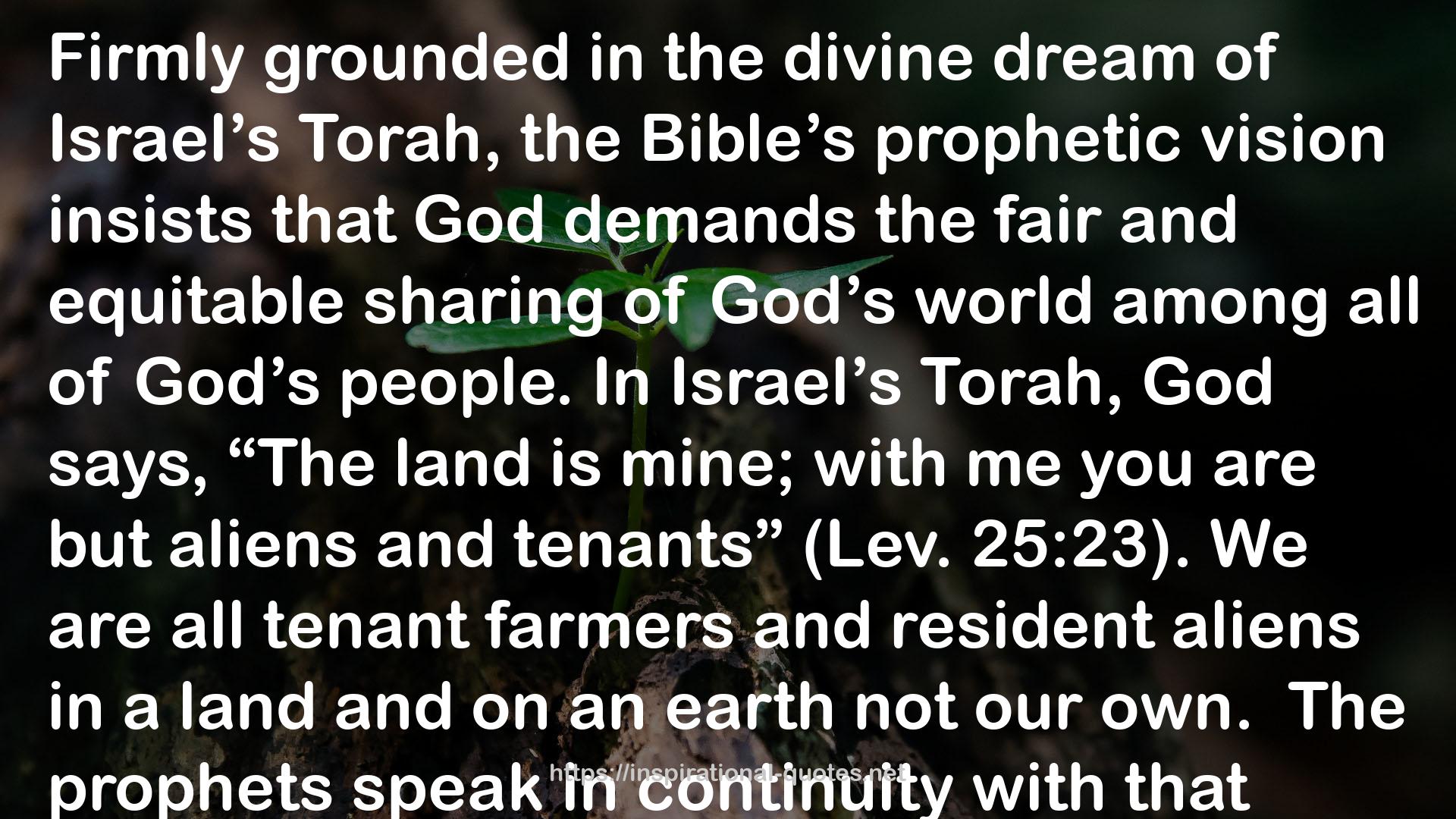" Firmly grounded in the divine dream of Israel’s Torah, the Bible’s prophetic vision insists that God demands the fair and equitable sharing of God’s world among all of God’s people. In Israel’s Torah, God says, “The land is mine; with me you are but aliens and tenants” (Lev. 25:23). We are all tenant farmers and resident aliens in a land and on an earth not our own.
The prophets speak in continuity with that radical vision of the earth’s divine ownership. They repeatedly proclaim it with two words in poetic parallelism. “The Lord is exalted,” proclaims Isaiah. “He dwells on high; he filled Zion with justice and righteousness” (33:5). “I am the Lord,” announces Jeremiah in the name of God. “I act with steadfast love, justice, and righteousness in the earth, for in these things I delight” (9:24). And those qualities must flow from God to us, from heaven to earth. “Thus says the Lord,” continues Jeremiah. “Act with justice and righteousness, and deliver from the hand of the oppressor anyone who has been robbed. And do no wrong or violence to the alien, the orphan, and the widow, or shed innocent blood in this place” (22:3).
“Justice and righteousness” is how the Bible, as if in a slogan, summarizes the character and spirit of God the Creator and, therefore, the destiny and future of God’s created earth. It points to distributive justice as the Bible’s radical vision of God. “Ah, you who join house to house, who add field to field,” mourns the prophet Isaiah, “until there is room for no one but you, and you are left to live alone in the midst of the land” (5:8). But that landgrab is against the dream of God and the hope of Israel. Covenant with a God of distributive justice who owns the earth necessarily involves, the prophets insist, the exercise of distributive justice in God’s world and on God’s earth. All God’s people must receive a fair share of God’s earth. "
― John Dominic Crossan , The Greatest Prayer: A Revolutionary Manifesto and Hymn of Hope
